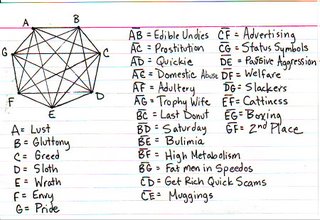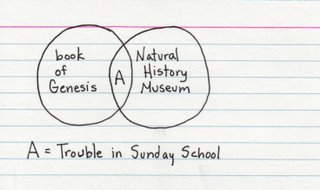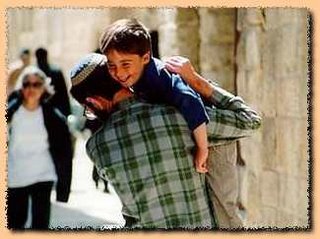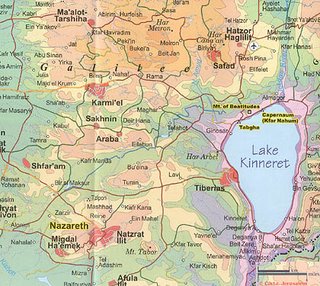
Comments and corrections welcome.
Read the text
HERERead the introduction:
New Year's Revolution.
Jesus takes us to three places:
Point 1: Jesus takes us from the Pious to the Personal.Point 2: Jesus takes us from mere Information to true Insight.Point 3. Jesus takes us from Passover to the Passion.Here is something interesting: The Gospel of Luke is Jesus’ travel log to Jerusalem. Jesus only gets to Jerusalem in his adult ministry in Ch 19 (The so-called Triumphant entry).
In Luke’s account, there are only three recorded times that Jesus goes to Jerusalem before he begins his adult ministry.
As a
baby, his parents offer a sacrifice, as was the pious duty of a Jewish parent.
As a
boy, our text here, at Passover time.
As a
man, just before he begins his ministry, the devil takes him to Jerusalem to tempt him NOT to take the path of the cross. The devil basically tempts Jesus saying that God wants Jesus to have his
Best Life Now, and to avoid the cross, and conflict, and suffering, and rejection.
Each time, there is this foreshowing of the sacrifice and the passion of the Christ.
Here in our text, they are there in the
Temple at
Passover.
Passover was the time when Israel remembered that a lamb
must be sacrificed; an offering
must be given for sins to be covered. For judgment to be avoided. A lamb
must be sacrificed before the people can be set free. That’s what Joseph would have been instructing Jesus in.
And Jesus is there, in the temple, in Jerusalem, at Passover. And he says: V49
“Did you not know that I
must be in my Father’s house?”
The original language is not ambiguous about the “must” there in that sentence. It carries with it a strong – ‘have to’ – ‘it is a necessity that’. The very kind of ‘must’ he uses later to say he
must die...
What is slightly more ambiguous is how to translate “in my father’s house”.
Literally, it is: “Did you not know that I must be ‘in the things of my Father’” Or maybe: “Did you not know that I must ‘concern myself with my Father’s matters’?” The older translations said: “my Father’s work”. It seems deliberately ambiguous.
And “My Father’s matters” is that God seeks and saves the lost. (
Luke 19:10). “My Father’s business” is that Jesus must die in Jerusalem for sin.
Jesus takes us from
Passover to the
Passion.
I find it interesting that Joseph, the father, lost his son for three days. And he astonished over this.
I find it faith compelling that God the Father lost his Son for three days. And the Father was in agony over this.
Jesus cried on the Cross: “My God, My God, why have you forsaken me?” or maybe: “Why have you lost me?”
Jesus takes us from
Passover to the
Passion.
So -- to sum up. To be a father is, in part, to give your child your eyes. Your outlook. Your view of how things are: the nature of things. Your view of the future: The shape of things to come.
Joseph probably wanted for Jesus to be a pious Jew, honorable and capable. He wanted him to grow strong and maybe join the carpentry business. He wanted to put his hands to work on wood.
But Jesus knew -- at least by 12 -- knew that he was going to give Joseph his eyes.
To be The Father God is, in part, to give his Son his eyes. His outlook. His view of how things are: the nature of things. His view of the future: The shape of things to come. And that involved Jesus having a personal relationship with God. Where his hands went to work on wood, yes. But only together with the metal of a Roman executer’s nails.
And this mean giving Joseph and Mary -- and you the one who joins Jesus in his travel -- He gives you the eyes of a personal God, whom you can seek, and you will find in Jesus.
THE END…
 I wish that this hadn't made me laugh (Click on Pic for the artist). If I hadn't laughed, I might have cried. I wish I knew which response to give. Either way, this chart is full of raw insight (and I say that like there is another kind). Not least of which is its title: "We are all going to Hell".
I wish that this hadn't made me laugh (Click on Pic for the artist). If I hadn't laughed, I might have cried. I wish I knew which response to give. Either way, this chart is full of raw insight (and I say that like there is another kind). Not least of which is its title: "We are all going to Hell".













